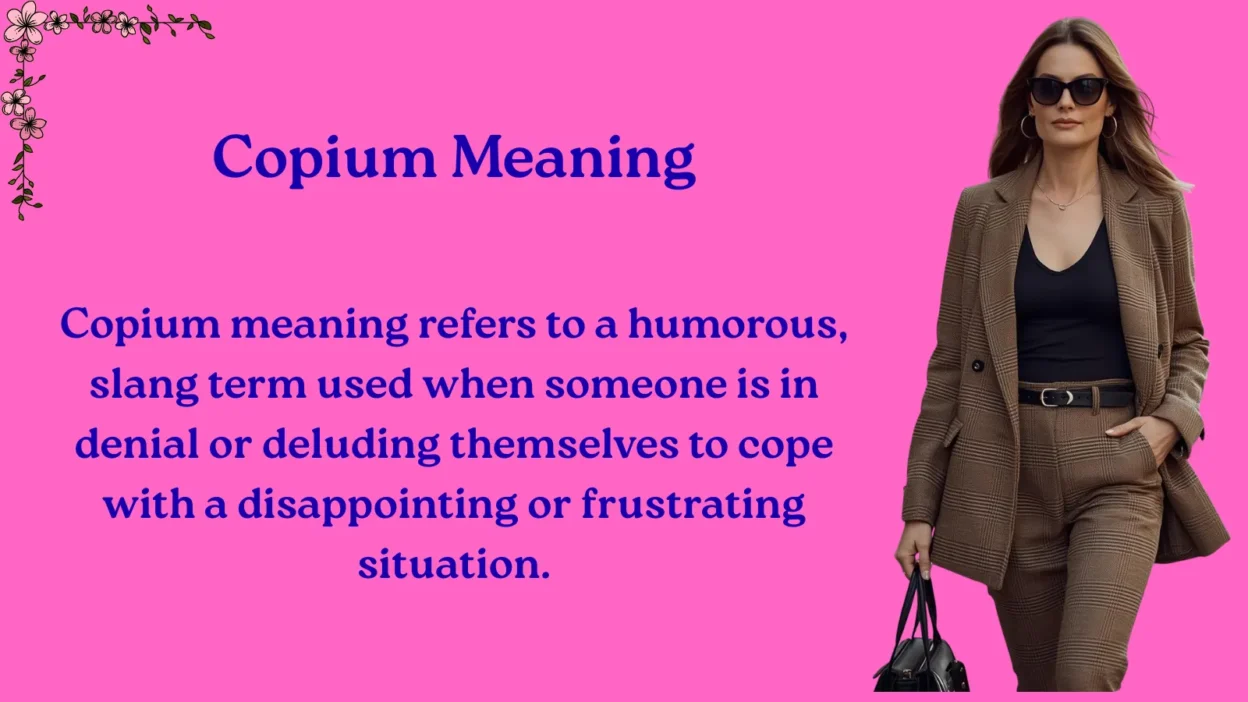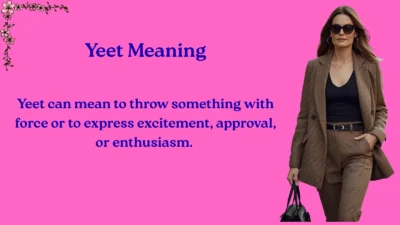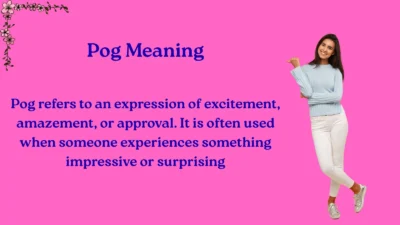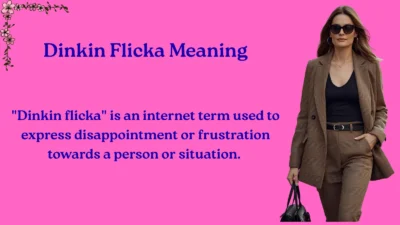Ever scrolled through social media or a gaming chat and seen someone type “copium” and wondered what it meant? Copium meaning captures a playful, modern slang used to describe when someone is in denial or clinging to false hope. It’s often employed humorously to point out that a person is rationalizing a bad situation or comforting themselves with wishful thinking.
This term pops up everywhere: in daily texting, online gaming chats, social media threads, and even casual office banter. Understanding copium helps you navigate conversations, memes, and discussions more accurately, especially online. Whether someone is lamenting their favorite team losing, joking about a crush not responding, or jokingly defending a bad decision, copium is the perfect word to describe that emotional self-soothing. Knowing it also prevents misunderstandings and adds a fun layer to your digital vocabulary.
In this article, we’ll explore copium’s definition, history, usage, misconceptions, alternatives, and professional relevance, so you can confidently recognize and respond to it in any context.
What does copium mean?
Copium refers to a humorous, slang term used when someone is in denial or deluding themselves to cope with a disappointing or frustrating situation. Essentially, it combines the words “cope” and the suffix “-ium,” mimicking a fictional chemical or substance, implying that the person is “inhaling copium” to deal with reality.
Key points:
- Used online and in conversation to tease or lightly mock someone’s overconfidence or false hope.
- Tone matters: It’s usually playful but can come off as sarcastic.
Examples in dialogue:
- Gaming context:
- Player 1: “I think I can beat this boss solo!”
- Player 2: “Bro, that’s pure copium. You need a team.”
- Sports context:
- Friend 1: “Our team will definitely win the championship!”
- Friend 2: “Yeah, keep breathing that copium.”
- Dating context:
- User A: “I’m sure she’ll text me back tonight.”
- User B: “Stop the copium, she hasn’t replied in 3 days.”
In short, copium is a funny, shorthand way to highlight wishful thinking or denial.
Background & History
The term copium emerged in internet culture in the early 2010s but gained mainstream popularity around 2019–2020, especially through gaming communities and meme culture. It originated from the need to describe self-deluding optimism in humorous ways. Gamers, streamers, and social media users began combining “cope” with the chemical-sounding “-ium” to mock people’s unrealistic expectations.
Originally, copium was primarily used in gaming forums and Twitch streams, where players would joke about their losses or mistakes. Over time, it spread to Twitter, Reddit, TikTok, and Discord, becoming a staple in meme language.
The evolution reflects how digital communities creatively coin words to express complex emotions succinctly. Today, it’s not limited to gaming—it’s used in everyday conversations, workplace chats (lightheartedly), and social media posts.
Usage in Various Contexts
Copium is versatile and adapts to multiple settings. Here’s how it’s commonly used:
- Texting & Chatting:
- “You think your boss will change his mind? That’s a lot of copium.”
- Social Media:
- Twitter thread about politics: “Keep sipping the copium, folks.”
- Gaming:
- “He said he can win ranked solo. I’m not buying it—copium levels rising.”
- Casual Conversations:
- Friend: “I’m sure I’ll get promoted this year.”
- You: “Lol, copium.”
Dialogue example:
- Person A: “I think I can get her to like me by Friday.”
- Person B: “Copium inhalation detected.”
Tip: Using copium is best in informal or playful settings—it’s rarely used in serious professional talks.
Common Misconceptions & Clarifications
There are a few misunderstandings surrounding copium:
- Misconception 1: Copium is a real substance.
- Clarification: No, it’s purely slang and metaphorical.
- Misconception 2: It’s always offensive.
- Clarification: It’s generally humorous and light-hearted. Only tone or context could make it feel mocking.
- Misconception 3: Only gamers use it.
- Clarification: While it originated in gaming, it now appears in social media, memes, and casual conversation across demographics.
Example clarification in dialogue:
- Person A: “Are you saying I’m actually smoking copium?”
- Person B: “No, just joking—you’re full of wishful thinking.”
Similar Terms & Alternatives
If you want alternatives to copium, here are some popular ones:
| Term | Meaning/Use | Example |
| Salt | Frustration or disappointment | “He’s salty about losing again.” |
| Wishful thinking | Believing in an unlikely outcome | “That’s pure wishful thinking.” |
| Denial | Refusing to accept reality | “He’s in denial about the results.” |
| Gaslighting | Manipulating someone to doubt their reality | Rarely used as playful alternative |
| Hopes & dreams | Light-hearted phrase for unrealistic expectations | “Keep dreaming, champ.” |
How to Respond to This Term
Responses to copium vary based on tone:
- Casual: “Lol, true, I’m full of copium.”
- Funny: “Breathing that copium like it’s oxygen.”
- Professional: “Let’s focus on actionable solutions rather than wishful thinking.”
- Privacy-conscious: “Interesting perspective, thanks for sharing.”
Regional or Cultural Differences
- English-speaking countries dominate copium usage.
- Memes often spread globally, but non-English cultures may not fully grasp the nuance.
- Regional variations may adapt the word or use local slang for denial.
Example: In France, someone might say: “Encore de l’espoir irréaliste!” instead of “copium.”
Comparison with Similar Terms
| Term | Tone | Use Case | Difference from Copium |
| Salt | Mild | Frustration | Focuses on annoyance, not denial |
| Wishful thinking | Neutral | Optimistic denial | Formal, less meme-like |
| Denial | Serious | Avoiding reality | Clinical, not humorous |
| Copium | Playful | Emotional self-delusion | Meme, humorous, casual tone |
Usage in Online Communities & Dating Apps
Tinder / Bumble:
- Users joke about unreturned messages: “Stop the copium, she’s ghosting.”
Twitter / TikTok:
- Often used in memes for sports, politics, or celebrity fandoms.
Gaming communities:
- A light-hearted taunt among friends when someone overestimates their skill.
- Tip: Always read the room. Copium works best in playful or informal online spaces.
Hidden or Offensive Meanings
- Mostly harmless: Copium is humorous, but tone matters.
- It can be perceived as mocking or sarcastic.
- There are no widely recognized offensive meanings, but overuse can come across as condescending.
Suitability for Professional Communication
- Copium is not recommended in formal business emails or meetings.
- Instead, use phrases like:
- “That may be an overly optimistic assumption.”
- “Let’s look at realistic expectations.”
- Keep copium for casual, informal environments.
FAQs
1. What does copium stand for?
It’s slang for someone self-deluding or coping with disappointment.
2. Is copium offensive?
Generally, no—it’s humorous, though tone can make it mocking.
3. Where did copium originate?
From gaming and internet meme culture around the 2010s.
4. Can I use copium professionally?
No, stick to formal alternatives in business or professional settings.
5. Are there similar terms?
Yes, like salt, denial, wishful thinking, or hopes & dreams.
6. Is copium widely recognized globally?
Mostly in English-speaking online communities, though memes spread worldwide.
7. How do I respond if someone says “copium”?
You can respond casually, humorously, or professionally depending on context.
Conclusion :
Copium is a playful, modern slang used to call out denial, wishful thinking, or emotional self-soothing. From gaming chats to social media memes, it’s become a staple of online culture. Understanding copium helps you decode online conversations, join in on jokes, and avoid misunderstandings.
While it’s best suited for casual, informal contexts, knowing how to respond—casually, humorously, or professionally—adds flexibility to your communication. In the digital age, a little knowledge of copium can make your conversations smarter, funnier, and more relatable.





